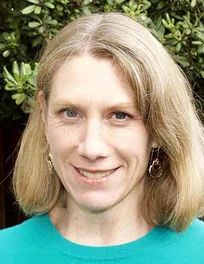Together, we can reimagine student mental health
Guest Column by Melissa Stafford Jones
October 31, 2022

We’ve heard from educators how important the mental health and emotional well-being of students are to their success in school and beyond. We’ve also heard how students are struggling to find joy, hope and deep connections amid the challenges they face. We know you’re on the front lines helping students navigate an unfamiliar, sometimes-confusing behavioral health system to get the help they need. You are witness to the impact of the youth mental health crisis daily.
The Newsom Administration recognizes the depth and urgency of California’s youth mental health crisis and schools’ vital role in our kids’ well-being. In response, and as part of the state’s Master Plan for Kids’ Mental Health, our state created the Children and Youth Behavioral Health Initiative (CYBHI), a five-year, $4.7 billion effort to reimagine and transform the way California supports mental and behavioral health needs of children, youth and families.
The CYBHI seeks to ensure that young people receive supports and services to strengthen well-being and address their behavioral health needs. We will increase access to services throughout the state and meet kids where they are at — most notably in schools.
The initiative is conducting extensive outreach to ensure the voices, experiences and expertise of children, youth, families and those with professional expertise — like education — guide this work. This includes working groups, listening sessions, discussions with LEA leaders, education associations and coalitions, and partnering with the California Department of Education and the State Board of Education. We are engaging K-12 partners because collaboration between health and education is vital to success.
The CYBHI is an equity-focused, whole-child initiative designed for and with children, youth and families. What have we heard that young people want from a reimagined system?
We’ve heard they want more visible and accessible support for mental health in schools. They want online and easily accessible resources, and a greater focus on healing and well-being. They want support from people who look like them and understand their cultures and experiences. They want to know that caring adults who they can trust will check in on them. They want support and services for their whole family. And they see access to parks and activities like art as key to their mental health.
CYBHI is organized under four focus areas: transforming behavioral health infrastructure to ensure equitable access, designing an all-payer approach, strengthening and building a diverse workforce, and reducing stigma.
This work requires catalyzing greater alignment and coordination among system partners, including clinical providers, schools, childcare, community-based organizations, social services, parks, pediatricians and others.
CYBHI represent[s] a once-in-a-generation opportunity for cross-sector collaboration and reducing barriers to mental health services for students.
Schools are critical to the ecosystem supporting California’s children and youth. That’s why the CYBHI includes:
- Developing a new statewide fee schedule for school-linked behavioral health services that will allow LEAs to bill Medi-Cal and commercial health plans for defined behavioral health services.
- Building infrastructure through school-linked partnerships and capacity grants and the scaling of evidence-based and community-defined practices.
- Supporting partnerships between Medi-Cal managed care plans and LEAs.
- Providing tools and learning opportunities for schools for social-emotional learning through the CalHOPE Student Services program.
- Investing in increasing the behavioral health workforce and developing a new behavioral health coach role to expand and create a more diverse workforce.
- Providing training on trauma-informed care to educators, school personnel and childcare providers.
While the CYBHI represents long-term transformational change, our young people
also need support now. The 2022-23 state budget includes $290 million in investments to address urgent youth behavioral health needs. The budget also includes investments to help schools build the school counselor, psychologist and social worker workforce through the $184 million counselor residency program and expand the PPS workforce through the $500 million Golden State Teacher Grant Program.
The Master Plan for Kids’ Mental Health and CYBHI represent a once-in-a-generation opportunity for cross-sector collaboration and reducing barriers to mental health services for students. Working together, we can reimagine and build a system that supports positive mental health and ensures children and families get the help they need to grow up stronger, with schools as a cornerstone. For these unprecedented investments to succeed, we need the involvement of school leadership, educators and many others supporting youths’ well-being.
To learn more and stay engaged as we partner to support students and families, sign up for our mailing list at CYBHI@chhs.ca.gov and visit our webpage at www.chhs.ca.gov/home/children-and-youth-behavioral-health-initiative/.
Melissa Stafford Jones is director, Children and Youth Behavioral Health Initiative at the California Health and Human Services Agency.
FYI
Leadership Magazine
The November-December 2022 issue of Leadership magazine focuses on the topic of mental health in schools. Read it online now at leadership.acsa.org/nov-dec-2022 for insights, information and effective practices.
ADVERTISEMENT
Contact Us
www.acsa.org
© 2022 Association of California School Administrators








